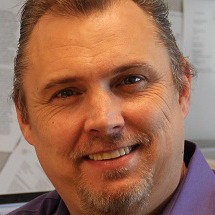Peter Alexander, PhD
Dr. Peter Alexander is the Assistant Director of the Center for Cellular and Molecular Engineering and an Assistant Professor in the Department of Orthopaedic Surgery both within the University of Pittsburgh. Dr. Alexander received his BS/BA in Biology/Studio Art from the Wake Forest University, Winston-Salem, NC, and his PhD in Developmental Biology and Teratology from the Thomas Jefferson University in Philadelphia, PA. He conducted his postdoctoral training in the Cartilage Section and a research fellowship in the Osteoarthritis Section, both at the NIH/NIAMS, Bethesda, MD.
Dr. Alexander’s background includes research in developmental biology, mechanisms of teratology and reproductive toxicology, orthopaedic surgery, stem cell biology, and tissue engineering. Examples include: investigating the fate of adult stem cells in embryonic chimeric cultures; the role of stem cells and specific cell signaling systems in osteoarthritis (OA); development of in vitro and in vivo models to study the early pathogenesis of OA; cell-based tissue engineering approaches to articular cartilage repair, nerve and tendon; development of bioreactors and microphysiological cultures for the study of tissue development, homeostasis and pathogenesis; and organotypic models for in vitro testing of developmental toxicants and probing mechanisms of metastasis and potential therapeutic interventions.
Active areas of research that he is pursuing include: customized fabrication of condylar osteochondral tissue for joint surface repair; development of a novel cell-based therapeutic agent for prevention and treatment of osteomyelitis; trauma-induced heterotopic ossification: cellular and molecular targets for clinical intervention; regenerative repair of traumatic articular cartilage injuries: point-of-care use of mesenchymal stem cells, PRP and chondrocytes; application of adult stem cells and native tissue matrices for tissue regeneration; ground-based analysis of the effects of microgravity on intervertebral disc development: An in vitro tissue engineering-based model utilizing adult stem cells; mechanism of skeletal dysmorphogenesis in the WDPCP mutant mouse; and application of adult mesenchymal stem cells and induced pluripotent mesenchymal progenitor cells to osteochondral microtissue formation and testing for the study of disease pathogenesis, embryotoxicity, and drug screening.
Common themes that run through these applications are the use of stem cells in tissue engineering either as a participant or mediator of regenerative processes, the development of in vitro and/or in vivo models with which to test specific cell and tissue interactions, developmental or pathogenic processes, and the use bioreactors to recapitulate specific cell and tissue interactions to produce physiological systems that more faithfully report disease processes and therapeutic outcomes.
Most recently, Dr. Alexander’s work received honors, which include: 2018 Best Paper, European Society for Sports Traumatology, Knee Surgery and Arthroscopy (ESSKA), Glasgow, Scotland, May 9-12. (presented by Benjamin Rothrauff, MD/PhD); and 2019 John J. Joyce Award, International Society of Arthoscopy, Knee Surgery and Orthopaedic Sports Medicine (ISAKOS), Cancun, Mexico, May 12-16. (presented by Tomoya Iseki).
View a list of Dr. Alexander’s publications here.

